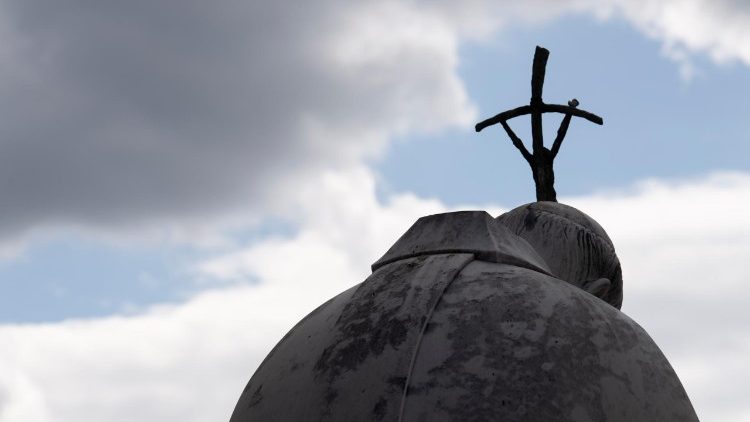Providing help to LIVE
Three patients who had requested euthanasia decided not to die after seeing their pain relieved with an innovative technique that makes the pain no longer perceived as unbearable. The medical journal Neuromodulation has published the results of an innovative technique that has been implemented at the Hospital del Mar in Barcelona, which has achieved, thanks […]

Three patients who had requested euthanasia decided not to die after seeing their pain relieved with an innovative technique that makes the pain no longer perceived as unbearable.
The medical journal Neuromodulation has published the results of an innovative technique that has been implemented at the Hospital del Mar in Barcelona, which has achieved, thanks to deep brain stimulation, that some patients with intense pain no longer perceive it as unbearable.
After applying this technique to two women and a man between 50 and 60 years old who had requested euthanasia due to suffering from severe neuropathic pain, the patients no longer wish to die after seeing their suffering relieved.
The neurosurgeon at the Hospital del Mar, Gloria Villalba-Martínez, points out in the aforementioned article that “the pain does not disappear after surgery, but it is no longer perceived as unbearable.”
Until now, none of the treatments that the patients had received had relieved them. The pain they experienced originates in the nervous system, although there is no specific, identifiable cause. Despite having tried several treatments, none managed to relieve the intense pain they felt.
The technique used consists of deep brain stimulation by implanting electrodes in the anterior cingulate, a structure of the brain located below the cortex and which is related to the affective component of pain, that is, how each of us experiences and feels pain.
A new therapeutic possibility
In the Neuromodulation article, it is stressed that in countries where euthanasia is permitted, ethics committees should take into account that there are treatments with positive results in certain patients, although they do not yet have great scientific evidence.
What happened with this experimental technique, the magazine points out, “opens a debate where the need to evaluate these new techniques in extreme cases is put on the table, even if they do not have that advanced clinical endorsement.”
From the Metges Cristians Association, they celebrate the news of the patients who have cancelled their requests for euthanasia. José María Guardiola, president of the Catalan Association of Bioethical Studies, has expressed his joy at this important news: “this advance reinforces the idea that the function of medicine is to alleviate suffering, not cause death.” In addition, he highlights that “it is essential that these techniques, along with others, are available to everyone.”
Guardiola explains that “the majority are patients with an advanced oncological or neurological disease. In their process there comes a moment of certain despair; they think they are a hindrance, the pain is poorly controlled, and a depressive and anxious picture is usually associated with it that complicates everything.”
Requests for euthanasia in Spain
Since the euthanasia law was approved in our country in June 2021, that same year there were 173 requests according to the annual report on the provision of aid to die from the Ministry of Health. Of these requests, 75 were carried out.
According to the data published by the Ministry of Health for 2022, of the 576 requests for euthanasia submitted in Spain, 288 were finally carried out: 91 in Catalonia, 38 in Madrid, 27 in Andalusia, 24 in the Valencian Community, 24 in the Basque Country, 13 occurred in Navarra, 8 in Asturias, 10 in the Canary Islands, 10 in Castilla y León, 7 in Galicia, 8 in Aragon, 7 in Castilla-La Mancha, 6 in Cantabria, 6 in the Balearic Islands, 4 in La Rioja, 3 in Extremadura, and 2 in Murcia.
For its part, the Right to Die with Dignity (DMD) association has reported that 750 people requested euthanasia in 2023, 30% more than in 2022. Of the total number of requests, 350 died by euthanasia.
Our assessment
The euphemism “provision of assistance to die”, used in the legal norm to hide its true meaning, actually consists of ceasing the help that an incurable patient needs in the course of his illness, in order to proceed to end his life. Deliberately seeking death is killing, and by killing the suffering patient, we omit the duty to provide assistance, this time, to live. Because incurable diseases that cause suffering need to be treated appropriately to alleviate it, since we do not know how to cure them. It is the spirit of medicine: prevent, cure, alleviate.
But when the help required to live with illness and dependency turns into killing the patient, we abandon the medical act and adopt the role of executioners, who apply a capital punishment to the patient who requests it.
Manipulating language to manipulate ideas (“providing help to die”) deprives the patient of access to the truth hidden behind the euthanasia offer. People die, and, in the meantime, we try to live as well as possible and suffer as little as possible. And we end up dying from our illness or our old age. This is the ecological cycle of life, which requires accompaniment, affection, care, analgesia, supportive treatments or sedation, which allow us to improve the experience of the suffering patient until the end of his life.
To abort this process, even if it is proposed compassionately, cutting short the life of the suffering patient, is to deprive the human being of living with dignity until the end, giving meaning to the suffering that can make him grow spiritually and close his vital stage in peace.
More than 90% of patients requesting euthanasia who have been offered quality palliative care wish to continue living.
The new advance based on neurostimulation that we discuss here is another form of palliative care that, without curing the disease, allows us to improve the experience of patients with refractory pain.
More than 70,000 patients die in Spain with intense, avoidable pain due to not receiving adequate palliative care. Many of them may end up requesting euthanasia, not because they want to die with dignity, but because we have not helped them to live with dignity, offering them the palliative care they need, that is, the provision of help to live.
Julio Tudela Cuenca – Cristina Castillo
Bioethics Observatory
Life Sciences Institute
Catholic University of Valencia
Related

Discover Your Vocation: The Divine Path to a Full and Holy Life
Patricia Jiménez Ramírez
01 April, 2025
5 min

“I Stay With Those Who Care For Me”: An Anthem to Luminous People
José Miguel Ponce
01 April, 2025
2 min

Francis’s 38 Days in the Hospital: Appointments and Cries for Peace
Exaudi Staff
01 April, 2025
5 min

Forgiving Infidelity
P Angel Espinosa de los Monteros
31 March, 2025
2 min
 (EN)
(EN)
 (ES)
(ES)
 (IT)
(IT)

